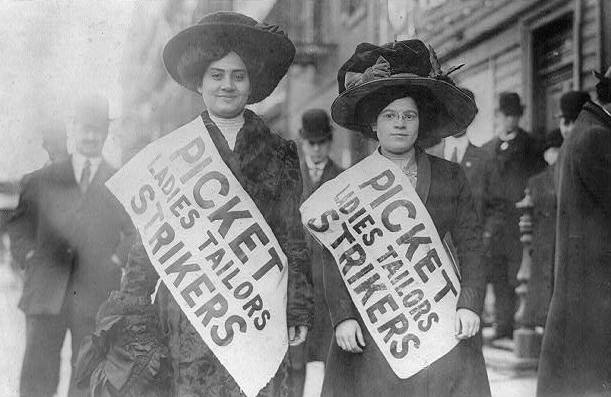Introduction
This guide is intended to introduce activists to union solidarity.
Overview
Union solidarity is recognized as a fundamental attribute of organized labour. In labour dispute situations — strikes and lockouts, solidarity can take the form of [[strike support]]. Beyond solidarity among unionized workers, public support for strikers can also be an invaluable bargaining tool in labour dispute negotiations.
A strike is a work stoppage in which employees refuse to work. Strike actions tend to be in response to employee grievances.
In contrast, a lockout is a work stoppage in which an employer prevents employees from working. An employer may order a lockout in an attempt to counter an impending strike action.
Considerations
How can I show my support?
Who should I contact to voice my support?
Where can I find information?
Showing support
To be in solidarity with a union, supporters may consider joining the picket line alongside strikers. To do so, individuals should consult a union’s website to determine the locations of local picket lines. Before joining a picket line, one may also consider making signs or buttons that showcase their support. Upon arrival to the picket line, supporters should approach the picket-line leader to inform them of their attendance, or the presence of their organization. In some cases, these individuals may have to visit a registration or check-in centre prior to joining the demonstration.
Strike supporters can also endorse strikers by attending support demonstrations and solidarity rallies. Individuals should be able to access information regarding such events via the union’s website.
At the same time, some may also drop off food or beverages as a show of support for the strikers.
Aside from joining the picket line, honouring a picket line is another form of solidarity. In such instances, strike supporters pledge not to cross strike lines.
Strikes necessitate professional and personal sacrifice on the part of unionized workers. In light of this burden, some may consider hosting or attending a fundraiser to express solidarity. Donations to worker support funds are another option for those able to provide financial assistance to strikers.
Voicing your support
Keep in mind that strong statements of picket-line solidarity serve as proof of public support for a striking union. The leveragability of such expressions of support may prove to be invaluable in negotiations.
If you are a union member yourself, consider informing your union of your support for a striking counterpart. In some cases, unions may show their solidarity with other unions by joining them on the picket line. In some cases, this may even occur during lunch hours. Union-to-union pledges of solidarity may be valuable in the bargaining process.
Consider contacting your elected local representatives to voice your support for the strikers. This may include reaching out to your city councilor, mayor, MP, or MPP.
When expressing solidarity, supporters should also approach local media outlets. In this case, expressions of support can take the form of letters to the editor, or calls to phone-in radio programs.
Staying informed
Staying informed on labour issues is another way to advocate on behalf of workers. Any union’s website is a great resource for staying up-to-date on unfair labour situations.
During a strike, opportunities for interested community members to attend Strike Support Committee meetings are common. Information regarding such events is available on a union’s website. In most cases, information or updates can be obtained by directly calling a strike headquarters or a strike hotline.
http://en.wikipedia.org/wiki/Strike_action
http://en.wikipedia.org/wiki/Lock_out
http://cupe.ca/strike-support
http://www.labourcouncil.ca/strike-support.html



